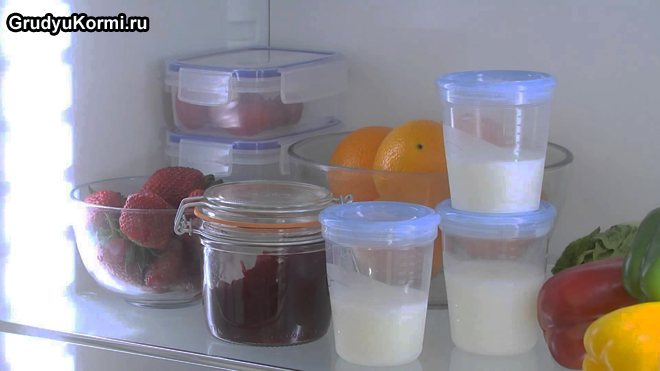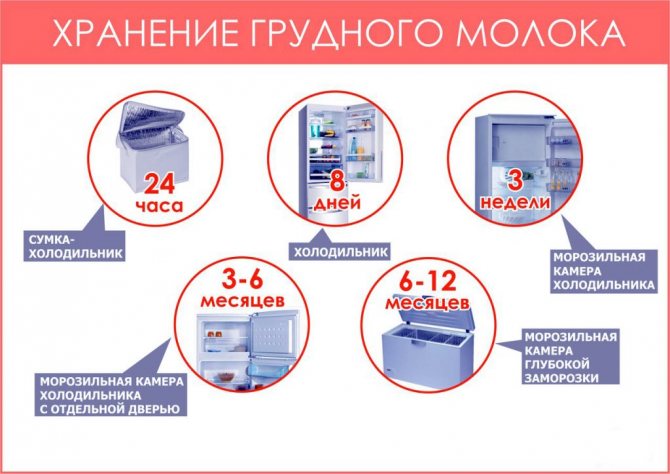Breastfeeding is the best thing a mother can give to her child. But under various circumstances this may not be feasible. However, mother's milk is healthier than all formulas, even the most expensive ones. In this case, feeding expressed milk from a bottle is the best solution. To do this, you need to learn the correct technique for pumping and feeding from a bottle.
Reasons for bottle feeding
The reasons for feeding expressed milk from a bottle may be different, but the main thing is to preserve mother's milk. After all, it contains all the useful and necessary substances.
- One of the main reasons is the mother’s forced early departure to work. Previously, this was a widespread phenomenon; women went to work after sick leave. We also pumped because we tried to keep the time to 3 hours. Now this also happens. In this case, there is no need to transfer the baby to artificial feeding. It is better to express for these purposes. And the nanny or one of the relatives will feed the child with this.
- Illness of the baby or mother. If one of them is in the hospital and the other at home, then this is an excellent way to maintain breastfeeding.
- Prematurity or any other abnormality in which the sucking reflex is undeveloped or too weak.
- The mother's need to separate from the child.
- Irregular shape of the nipples (inverted), making it difficult for the baby to suck.
- Baby's refusal to breastfeed.
In any case, it is simply necessary to preserve mother’s milk, since many who refuse breastfeeding or who cannot suckle later return to breastfeeding.
What are the benefits of breast milk for a baby?
The main argument for breastfeeding is the benefits of breastfeeding for the baby. It has been proven that not artificial formula, but mother’s milk in the first months of life has the most positive effect on the child’s health.
Strong immunity
When breastfeeding, the baby is much less susceptible to viruses and infections. Vitamins and special enzymes in breast milk are beneficial because they strengthen the baby’s immunity - he grows quickly, gets sick less often, and does not lag behind the age norm. Breastfeeding prevents the child from developing anemia and diabetes, as well as numerous stomach and intestinal ailments.
Making contact
The benefit of breastfeeding is that it helps establish a deep emotional bond between mother and baby. A baby put to the breast on the first day after birth grows up much more calmly than bottle-fed peers. Subsequently, the child feels stronger affection and love for the mother.
Reducing the risk of developing diseases
The beneficial properties of breast milk protect the baby's developing body from many ailments. Since the composition of the natural nutritional mixture is perfectly balanced, the child does not lack vitamins and minerals and does not suffer from their excess. The intestinal, nervous, cardiac, and musculoskeletal systems develop correctly and without interference, so the child grows up healthier.
Weight control
In healthy breast milk, fats are present exactly in the volume in which they are not capable of harming the baby. With natural feeding, muscle and fat tissues in the child’s body are distributed evenly. The baby does not suffer from obesity, and the risk of acquiring early diabetes mellitus or hypertension is reduced.
Healthy sleep and well-being
The benefit of breastfeeding is that it has a calming effect on the baby. Thanks to its properties, the child sleeps better and wakes up less often at night, and does not cry as often.
Attention! When breastfed, children are less likely to experience colic and regurgitation.
But after consuming artificial formulas, they often occur; store-bought baby food can harm the body.
We recommend reading: The benefits and harms of kumiss for the body
Healthy teeth
In the process of sucking the mother's breast during feeding, the child develops a correct bite. In the future, this allows you to avoid the development of caries - bacteria do not accumulate in hard-to-reach places, and tooth brushing becomes as effective as possible.
How to express milk
In order to express, you can use the manual method or use a breast pump, which are now available in a wide range.
When expressing by hand you must:
- sit on a comfortable surface and lean forward slightly so that your chest hangs over the container;
- massage to drive milk to the nipples;
- then, with smooth squeezing movements, stretch the breast from the base to the areola;
- At first, a few drops will separate, then streams will flow;
- Do not pull or tug on the nipple if milk is difficult to express. This will not help make everything faster; rather, it will only injure the nipple itself.
The advantage of this type is that the container into which milk is expressed is much easier to sterilize. They also talk about less trauma to the nipples. But with current breast pumps, the risk of damage is also low if used correctly. A rather big disadvantage is the duration of the manual process - from 30 to 50 minutes per breast.
Breast pumps are divided into manual (mechanical) and electric. They must be expressed according to the instructions. Their advantage is speed, since in this case it will take only 10-20 minutes for the entire process. If you need to constantly express milk, it is best to purchase an electric breast pump or a good piston pump, as this will save your time.
You can understand that milk was expressed correctly if the process did not cause any discomfort, and also if after this there is a clear feeling of relief in the chest.
How many times to express, you need to focus on how many times you need to feed the baby in accordance with his age. A newborn eats approximately 10-12 times a day, including at night. Therefore, to maintain lactation, you will have to express in the same way. After 2-3 months this frequency decreases. But to maintain the “bank” of milk, you can maintain the same order.
When and how often should you pump?
Let's take a look at the reasons, since it depends on them how often and how many times this process needs to be performed:
- In case of stagnation - once every 1-2 hours. During the milk extraction process, it will take as much as possible to reduce the density. The maximum time for such a procedure is half an hour. If you deviate from these instructions, you can easily injure the mammary gland.
- In order for the amount of milk secretion to increase - immediately after each feeding and 1-2 times during the feeding period of the newborn. Typically, pumping takes 10 minutes after feeding and 15 minutes in between.
- If you feel that your breasts are full, you can pump more often for relief, but only if you feel pain. In this case, you should squeeze out a little milk to make it easier. Don't forget, the more you express, the more milk you will have next time. It is best to perform the procedure within 5 minutes.
- If you decide to take a break, but at the same time want the milk to continue to be released , then you need to express once every 3 hours, while comparing the baby’s feeding regimen. You need to squeeze out such an amount of liquid so that when breastfeeding is resumed, the baby can eat. The process takes 20-30 minutes.
- If the mother wants milk to remain in reserve, then she should express herself a couple of times a day in between feeding the baby. You should independently choose the time and amount of expressed milk, and do not forget to compare the data so that the next time you eat food, the breasts have time to collect the required amount of fluid, and the baby does not feel hungry.
Rules for storing milk
After the milk has been expressed, it must be left for a while at room temperature. This is done if you are not going to feed the baby right away. After standing for half an hour, you can put it in the refrigerator. There it can be stored for 2-3 days. But the best option is to freeze it and store it in the freezer.
To store in the freezer, it is necessary to pour milk into special disposable bags. They must be clearly marked: the date and time when it was expressed. Since expired milk is not suitable for feeding a child and must be disposed of.
In the refrigerator, milk can be stored in a bottle or glass container. They also need to be marked with date and time. However, before each use they must be thoroughly washed and sterilized. When storing in the refrigerator, containers should be placed as close to the freezer as possible and in no case in the door, since the temperature is much lower.
The milk itself does not need to be sterilized. Before use, warm it up to room temperature naturally or with hot water, but under no circumstances in the microwave.
How long you can store expressed milk depends on the temperature around it.
| storage temperature, °C | storage time |
| 18 — 22 | 10 hours |
| up to 26 | 6 hours |
| 15 — 18 | 8 ocloc'k |
| from 0 to 10 (in the refrigerator) | 4 – 8 days |
| from -10 to 0 | from 1 to 3 months |
| from -20 to -10 | from 6 to 12 months |

Rules for feeding a baby with expressed milk
If you are going to feed your baby, be sure to heat the liquid to a temperature of 36 degrees. If the milk was previously in the refrigerator, then it must be immersed in boiling water or another heating method must be used.
If you stored milk in the freezer, you should put it in the refrigerator for a while before using it so that it becomes liquid. Then heat it as above.
Doctors say that it is undesirable to use a microwave oven to heat milk, since it kills all the beneficial elements.
You may notice that the milk has separated. To return it to its normal state, you need to shake the bottle a couple of times before drinking.
Shelf life of breast milk
It all depends on how you stored your expressed milk:
- Room temperature – no more than 6-8 hours. Take into account the fact: if the apartment is quite warm, then milk cannot be stored for more than 4 hours.
- Refrigerator – 2 days.
- Freezer – 1 year.

Bottle feeding rules
How to feed a child with expressed milk there are also several rules that should be followed strictly, since the health and even the life of the child depends on some of them.
- The main thing is to never leave your baby alone with a bottle. Even when he already knows how to hold it himself, he can choke. This is dangerous for his life.
- If you want to breastfeed your baby, you need to hold him in your arms in the same position as usual when breastfeeding.
- Unlike bottle feeding, when feeding a baby with expressed breast milk, the frequency should not be limited. As with breastfeeding, here it is primarily feeding on demand.
- The amount of milk per feeding is considered strictly individually. Since one child needs 80 ml, and the other – 120 ml. Also, at different feedings, volumes can vary by ±40 ml. You don’t have to worry about overeating, and you don’t have to rely on formula feeding standards. It doesn’t matter what you feed from a bottle, but it still contains mother’s milk, which differs in composition from artificial formula.
- If you still want to continue (or start) breastfeeding, you need to offer the breast every day. Especially at night, when the baby is not so picky about what he eats.
- Also choose bottles with orthodontic (naturally designed) nipples. They do not allow you to get out of the habit of natural feeding, form a correct grip and do not allow you to weaken the effectiveness of sucking.

I would also like to remind you that the volume and how many times to give a child a bottle depends on each child individually, and it is not necessary to standardize all children to the norm.
Benefits of breast milk
The chemical composition of this component is truly unique. The structural elements of this product are:
- Vitamins (A, groups B, D, C, K);
- Microelements (Ca, K, Mg, iron, zinc);
- Carbohydrates;
- Proteins;
- Fats;
- A set of specific antibodies;
- Growth hormones.
The quantity of the listed components is balanced, so the body of a newborn child does not risk encountering a deficiency or excess of certain biological elements.










